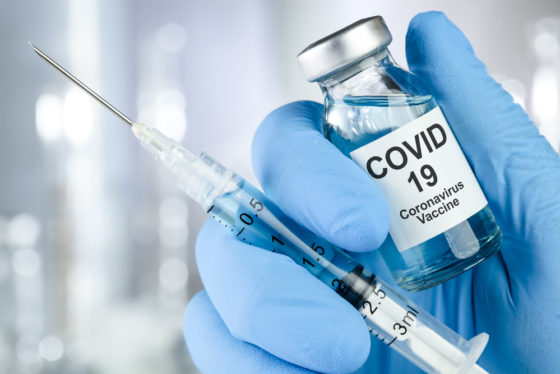Oxford vaccine delays mean Dutch need to rethink vaccine strategy


Problems at a production plant in Belgium where the AstraZeneca vaccine is made mean the Dutch coronavirus vaccination strategy needs to be thought out again, and further delays could be on the cards.
On Friday night AstraZeneca said that it would only be able to deliver 60% of Europe’s orders in the first quarter of 2020 because of production issues. This means that the Netherlands will get 920,000 doses rather than the planned 2.3 million.
The Oxford /AstraZeneca vaccine is seen to be key to efforts to control coronavirus because it is cheaper to produce and can be stored at fridge temperature and the Dutch vaccination strategy largely revolves around it.
‘Which ever way you look at it, you are going to have put the vaccine puzzle together again,’ Ben van der Zeijst, former head of the Dutch vaccine institute and the vaccine department at the public health institute, told Radio 1. ‘The plan was to vaccinate an awful lot of people with this vaccine.’
In particular, the AstraZeneca vaccine had been earmarked for the over-60s living at home, people aged 18 to 60 with health issues, and community nurses. It would also be the main vaccine for the rest of the population under the age of 60.
One option would be to delay giving the second dose, Van der Zeijst said, adding that this is something which the European Medicines Agency may outline on Friday, when it is expected to give approval to the AstraZeneca vaccine.
Currently, the Netherlands plans a gap of 12 weeks between the two doses of the AstraZeneca vaccine, but this could be easily stretched to 24 weeks, Van der Zeijst said.
Talks
Dutch health ministry officials say they are due to talk to AstraZeneca about the first quarter delivery schedule next week. ‘We have always said that information about which vaccine is being delivered and in what quantity are subject to change,’ a spokesman said.
According to the Parool, the AstraZeneca problems may mean a larger role for the Janssen vaccine, developed in Leiden by a Johnson & Johnson subsidiary. That vaccine is currently undergoing Phase 3 trials and, if all goes well, with approval process could start in February, the paper said.
Last week, health minister Hugo de Jonge took the decision to postpone the second dose of the Pfizer/BioNTech vaccine by two weeks so more people can be vaccinated.
The Dutch vaccination strategy to date had been heavily criticised for being slow off the mark.
Thank you for donating to DutchNews.nl.
We could not provide the Dutch News service, and keep it free of charge, without the generous support of our readers. Your donations allow us to report on issues you tell us matter, and provide you with a summary of the most important Dutch news each day.
Make a donation